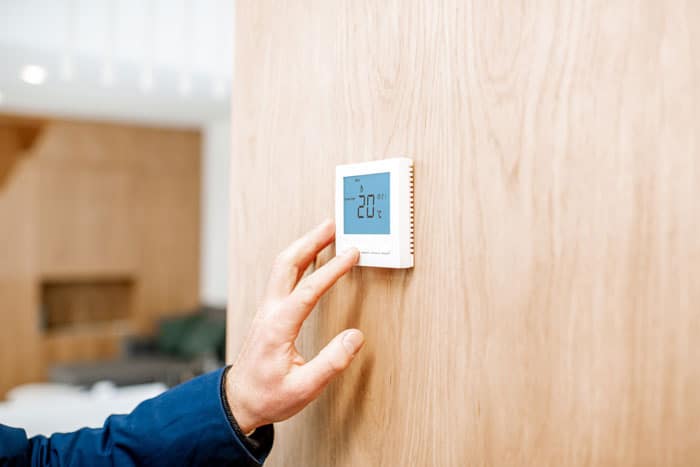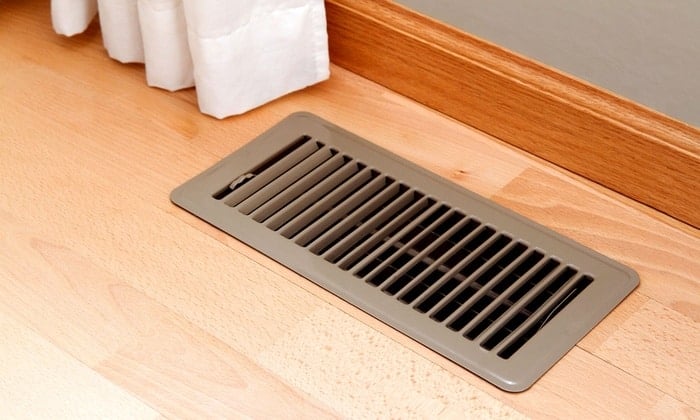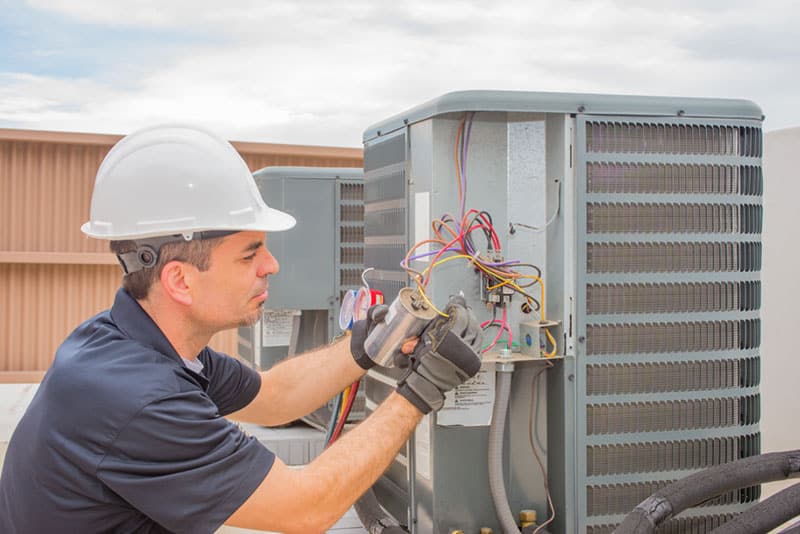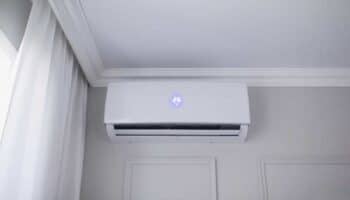At first, you thought you were just imagining it. Five minutes ago the air conditioner was running, but then it stopped and started right back up again.
Now you’ve confirmed it’s true, your air conditioner keeps turning on and off repeatedly. Of course, it’s hot, and you need it to keep running.
There are several reasons for this behavior, which I will list below, along with a solution or fix. Some of them will be easy things you can fix yourself, but unfortunately, others may mean calling a technician.
Ready? Let’s go.
The Reason Why Your Air Conditioner Keeps Turning on And Off
First of all, it’s important to realize that your air conditioner turning on and off is a symptom of a problem, not the problem itself.
What’s happening is something called short cycling, and it’s a very common problem.
What Is Short Cycling?
Short cycling is simply a term used in the HVAC industry to describe a furnace or air conditioner that turns on and off more frequently than it should.
If your equipment is working properly, the typical time for your air conditioner to cycle is about 15 to 20 minutes. This is when your AC is running. But when your equipment is short cycling, it can turn on and off in five-minute intervals.
This forces your air conditioner to work harder and could ultimately destroy your compressor.
Let’s address some of the things that can cause your air conditioner to short cycle. As well as issues not related to short cycling, but could also turn your air conditioner on and off.
| 6 Reasons Why Your AC is Turning On and Off |
|---|
| Location of Your Thermostat |
| Faulty Thermostat |
| Dirty Air Filters |
| Other Airflow Issues |
| Refrigerant Leak |
| Oversized Air Conditioner |
1. The Location of Your Thermostat

Your thermostat is the hub of your HVAC equipment. It communicates with either your air conditioner or furnace, telling them when it’s time to turn on your appliances.
When your system was initially installed in your home, the optimal position for your thermostat should have been chosen. This is a place that isn’t too close to any supplies vents, in direct sunlight, or even appliances that give off heat or cold.
In an unfavorable location, your thermostat is negatively impacted by its surroundings. So it could be telling your equipment to turn off when it shouldn’t be.
Solution. If you’ve installed a new thermostat in a location other than its original spot, consider moving it back. If this is not optimal, try to move other things around so they aren’t impacting your thermostat’s job.
2. Faulty Thermostat
All equipment has a lifespan. If your thermostat is no longer working properly, this could be causing your air conditioner to turn on and off.
Solution. There are a few things you can check. First, make sure your batteries are good. Ideally, use a voltage meter because the batteries may have some power and appear to be working properly but not have enough.
Your thermostat may also have a fuse, so pull it off the wall and check for a blown fuse. Replace if necessary.
Lastly, check the thermostat by placing a thermometer on the wall close to it. Make sure your thermostat is reading the same temperature as your thermometer. If not, it’s time to buy a new thermostat.
3. Clogged Drain
A clogged drain could cause a short cycling event, as the float switch would turn off the air conditioner as it can’t extract any more humidity from the air, as the water level would have risen too high.
The water would slowly draining – allowing the AC to turn back on – but it wouldn’t take long before the water rises again and stops the unit from working. This could look a lot like short cycling, but in reality the air conditioner is perfectly fine!
Solution: Make sure your air conditioner’s drainage pipe and/or tank is clear.
4. Other Airflow Issues

Typically, the dirty filters mentioned above are the most common reason for airflow issues. However, there are other factors.
- Make sure air vents aren’t blocked. This applies to both return and supply vents. Make sure there’s no furniture pushed up against return air vents on walls, and don’t completely close supply vents.
- Have your fan inspected. Dirty air filters will also have an impact on your blower motor since it has to work harder. If that has been the case, your fan may not be working properly.
- Check for leaky ducts. If too much air is escaping from your ductwork, this can cause airflow issues.
5. Refrigerant Leak

Your air conditioner’s evaporator coil carries the refrigerant that helps to pull heat from your home. However, if it’s low, a corresponding reduction in pressure means your compressor will not operate properly.
Most compressors have a safety feature called a low-pressure monitor. If pressure drops below a certain limit, it will shut your compressor off. This allows time for pressure to rebuild, which in turn restarts your compressor. This can lead to a cycle of your air conditioner turning on and off.
Solution. This is something that must be dealt with by a certified technician since refrigerant is dangerous.
6. Oversized Air Conditioner
Air conditioners are sized to your local climate and the size of your home—plus several other variables. If the contractor who installed your air conditioner didn’t size it correctly, you may have a system that is too big for your home.
While having a bigger air conditioner may seem like a good thing, in reality, it’s a bad thing. It will cool your home too quickly and then your equipment begins short cycling.
This is bad because:
- It will increase your energy bill
- The chances of your system breaking down will increase
- It will shorten the lifespan of your air conditioner
Solution. The good news is that an oversized system can be reduced in power by lowering the fan speed. This will lower the BTU rating of the air conditioner a little, and allow the system to pull more humidity from the air because now the fan is running slower – giving the air more contact time with the coil.
Conclusion
As you can see from the above, it’s often something simple—and relatively cheap—that’s causing your air conditioner to turn on and off. However, there are a few potentially expensive issues as well.
To recap, here are the things to check:
- Location of your thermostat
- Faulty thermostat
- Dirty air filters
- Other airflow issues
- Refrigerant leak
- Oversized air conditioner
Hopefully, the answer to your problem is one of the cheaper options, one that will have your air conditioner running properly again in no time.
If you have any other questions, why not check out our related posts to see if we have an answer for those as well.







